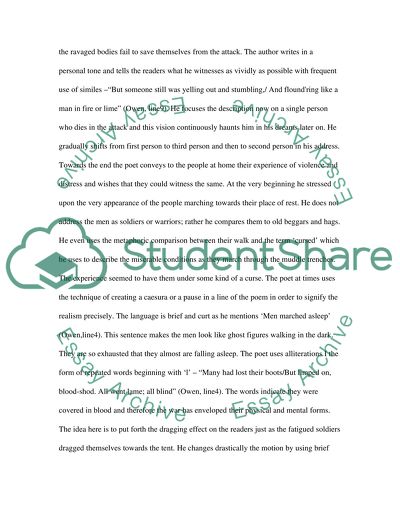Cite this document
(“Explain How Far Wilfred Owen Challenges the Notion that it is Sweet Essay”, n.d.)
Retrieved from https://studentshare.org/environmental-studies/1407761-explain-how-far-wilfred-owen-challenges-the-notion
Retrieved from https://studentshare.org/environmental-studies/1407761-explain-how-far-wilfred-owen-challenges-the-notion
(Explain How Far Wilfred Owen Challenges the Notion That It Is Sweet Essay)
https://studentshare.org/environmental-studies/1407761-explain-how-far-wilfred-owen-challenges-the-notion.
https://studentshare.org/environmental-studies/1407761-explain-how-far-wilfred-owen-challenges-the-notion.
“Explain How Far Wilfred Owen Challenges the Notion That It Is Sweet Essay”, n.d. https://studentshare.org/environmental-studies/1407761-explain-how-far-wilfred-owen-challenges-the-notion.


